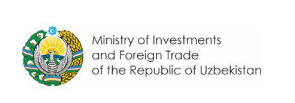
PPPs
Government Institutions

Ministry of Economy and Finance (MOEF)
MOEF is responsible for determining unified PPP policies; reviewing projects; approving tender documents and PPP agreements; and assisting ministries, agencies, and local public authorizes in implementing PPP programs. The MOEF also works with investors, international financial and donor organizations, scientific and expert communities, and other market stakeholders on PPP development issues, while protecting the rights and legal interests of PPP project partners.

Ministry of Investment, Industry and Trade (MIIT)
The MIIT implements unified state investment policies and promotes investment. Some of its major functions with respect to PPPs include initiating, procuring and promoting projects, as well as establishing agreements among the government, investors and International Financial Institutions (IFIs).

Cabinet of Ministers (CM)
The CM is the state body which ensures the implementation of unified state policies in the PPP field and approves concepts for PPP projects worth more than 10 million USD. The CM may authorize a specific government entity (e.g., Ministry of Energy, Ministry of Health) or another organization to act as a public partner in a PPP project on behalf of the Republic of Uzbekistan.
PPP timeline
PPP Project cycle
Project initiation
Selection
Selection
Uzbekistan committed to public-private partnerships (PPPs), viewing them as essential for improving public services and attracting much-needed investment and expertise. The country has experienced significant growth in PPP projects, with over 400 infrastructure initiatives, valued at approximately $16 bln, either completed or in progress. This marks a major change, especially given the lack of private sector involvement in such projects before 2018.
Currently, PPPs cover various sectors, including energy, healthcare, and education, with an expected mobilization of around $700 million. Additionally, several projects in energy, healthcare, and the chemicals sector have already been completed, with a total anticipated mobilization exceeding $1.8 billion.
Uzbekistan plans to expand its PPP efforts into sectors such as irrigation, transport, power distribution, and communal services, all of which face underinvestment and operational issues. To speed up the implementation of PPPs, the country needs to streamline project development, accelerate approvals, and simplify land acquisition processes.
Looking to the future, Uzbekistan’s ambitious Strategy 2030 targets $30 billion in private sector mobilization by 2030.
Public-Private Partnership Projects initiation
A private or public partner first develops a concept paper on the Public-Private Partnership project as well as a feasibility document packet, then approaches the responsible state authority for approval. Depending on its value, the Public-Private Partnership project may go through several stages of approval, starting from simple adoption by the public partner up to final approval by the Cabinet of Ministers. Depending on the project value, the following approval gradation is applicable:
<1 million USD: approval by the public partner
1–10 million USD: approval by both the public partner and Department of the Implementation of Public-Private Partnership Projects
>10 million USD: the public partner and Department of the Implementation of Public-Private Partnership Projects acknowledge the PPP project for approval by the Cabinet of Ministers
Selection of the Public-Private Partnership Projects
The public partner selects the private partner on tender. The tender is done in one or two stages.
Criteria for a single stage tender
The project value amounts to 1 mln USD or below, and/or
The private partner acts as an initiator (unsolicited project). If the public partner approves the concept paper the private partner submitted, the project proposal is put out for tender. Request for expression of interest should be posted on the website of the public partner and Department of the Implementation of Public-Private Partnership Projects for 45 days. If no one declares interest during the specified period, the public partner may enter into a direct agreement with the private partner.
Criteria for a two-stage tender
The project value exceeds USD 1 mln, and/or
The public partner acts as the initiator (solicited project). The tender commission, comprised of representatives from state authorities (e.g., public partner, Ministry of Finance, Antimonopoly Committee, Department of the Implementation of Public-Private Partnership Projects) determines the winning bid.